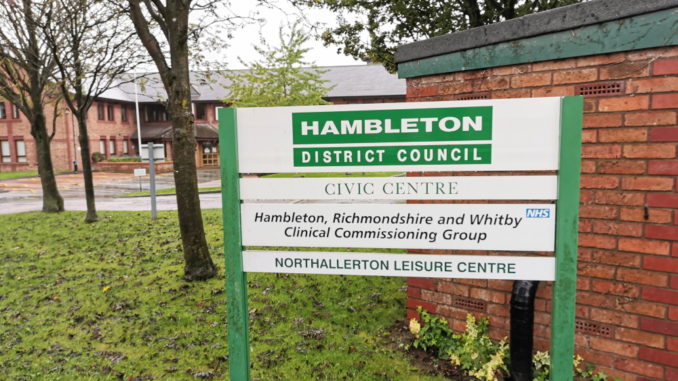
A plan to develop housing on farm fields on the edge of a Doomsday Book village has been rejected after residents complained that the historic settlement was being pushed to breaking point by the number of houses developers were hoping to build there.
Hambleton District Council’s planning committee voted to refuse the scheme to build nine homes on the eastern side of Burneston, near Bedale, after agreeing the proposed development featuring two-storey properties would “dominate” the village.
The meeting was told the site was outside the village’s development limits and the housing would extend the built part of Burneston into the countryside.
Officers added the development would not entirely destroy the well preserved remains of a medieval ridge and furrow field system, concluding that concerns about the scheme were outweighed by developers Mulberry Homes offer to make four of the homes affordable.
However, a parish council spokesman said with 122 properties already in Burneston, a further 11 being built and almshouses which were built in 1680 by the village’s vicar being refurbished, represented a relative increase “which no other village within a 20-mile radius has had to endure”.
The meeting was also told plans to build more homes beside the proposed housing site had recently been submitted by another developer.
The parish spokesman told councillors: “Our village facilities are extremely limited. No shop except for a post office on restricted hours, no village hall and an extremely limited bus service, so anybody moving into affordable housing would need to travel to shop.”
The meeting was told residents were extremely concerned about the impact of the nine properties on traffic in the village.
The parish spokesman added: “Already there is chaos during term time at drop-off and pick-up time with road entrances being used as a turnaround, parents parking their car on the corner as they take their children to school.”
A Mulberry Homes spokesman said the development would provide a mix of properties that would benefit local people and the viability of the development was tight due to the proportion of the proposed homes being affordable.
The council’s rural housing officer had welcomed the proposed affordable housing, saying two-bedroom homes in particular were much-needed in the parish.
The meeting was then told the developers’ plan to build more affordable homes than were required to meet targets could lead to fewer affordable homes being built elsewhere.
The Mulberry Homes spokesman said if it built bungalows on the relatively high ground, as some villagers had called for, it would undermine the scheme’s viability.
Nevertheless, councillors agreed building two-storey homes on the site would “stand out like a sore thumb” in the village and rejected the proposal.


Be the first to comment